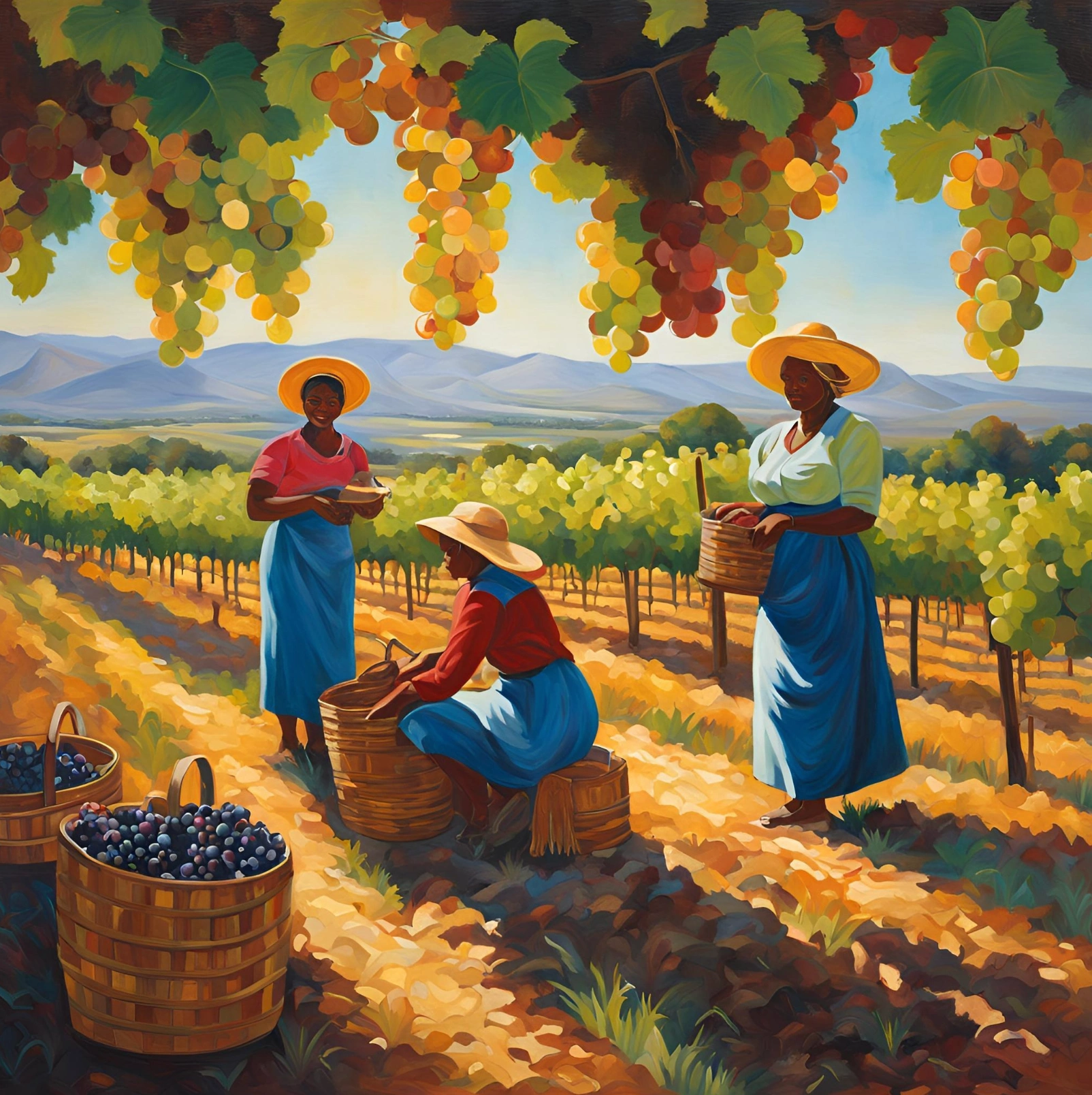Article Synopsis: Financial Control of Women on Wine Farms

Unpacking Paternalism: The Financial Control of Women on South African Wine Farms
When we set out to research the experiences of women working on South African wine farms, we anticipated uncovering a complex interplay of economic hardship and gendered labour dynamics. What we found was even more troubling than expected. Our study, Dependency, Paternalism and Financial Control of Women on South African Wine Farms, reveals how historical structures of control continue to shape the everyday lives of women in ways that reinforce financial dependency and systemic exploitation.
A Legacy of Control
South Africa’s wine industry has long been tied to paternalistic labour systems, historically rooted in racial and gendered oppression. While apartheid may have ended, many of its economic and social structures persist. On these farms, white farmers once dictated nearly every aspect of workers' lives. Today, a different system is at play, one that relies on economic vulnerability rather than overt racial hierarchies—but the effect remains the same: a workforce trapped by dependency.
For women, the situation is particularly dire. Historically, they were often excluded from formal employment, considered as mere appendages to their husbands' labour contracts. While labour laws have since changed, the reality on the ground is that many women continue to be sidelined into precarious, seasonal work—if they are employed at all.
How Casual Labour Hurts Women Most
One of our most striking findings was the extent to which casualisation of labour has deepened the vulnerabilities of women on these farms. Casual labour arrangements mean that women are hired on a short-term basis, often through labour brokers, rather than being given permanent employment. This precarious status leaves them without job security, benefits, or even consistent wages. It also means that their ability to remain on the farms, where many have lived for generations, is tied to their relationships with male partners who hold permanent jobs.
A recurring theme in our interviews was the way in which this economic dependency puts women at risk of financial control and even abuse. One farmworker described how store vouchers—provided by farm owners as a form of "support"—were given only to permanently employed men. Women, therefore, had to access these through their partners, reinforcing a structure where men controlled household resources. Another woman spoke of how the lack of childcare facilities effectively pushed her out of employment, as she had no safe place to leave her children while she worked.
A System Built on Dependency
The consequences of this system are far-reaching. Women on these farms are not only denied financial independence but also lack the ability to challenge unfair conditions. If they speak out, they risk losing the limited work opportunities they do have. One of our interviewees was dismissed after raising concerns about unfair treatment, a clear example of how speaking up can come at a steep cost.
This pattern extends beyond individual farms—it is a systemic issue embedded in the global production network of South African wine. International buyers and ethical certification schemes may promise fair labour standards, but these often fail to address the gendered vulnerabilities within farm labour structures. The reality is that the wine industry continues to rely on an exploited workforce, with women bearing the heaviest burden.
Moving Forward: Breaking the Cycle
So, what can be done? First, there needs to be a concerted effort to ensure that labour protections for women are enforced in meaningful ways. This includes stricter oversight of labour brokers, better access to childcare, and stronger protections against financial abuse in farm communities.
Second, ethical certification bodies that monitor labour conditions on South African farms must consider gendered labour inequalities more seriously. It is not enough for farms to meet minimum wage requirements if women remain locked out of permanent employment. Fair labour practices must address the structures that keep women economically dependent.
Lastly, there is a role for consumers to play. The next time you pick up a bottle of South African wine, consider the labour that went into producing it. Ask whether the brand supports ethical labour practices—not just in name but in action. Consumer awareness and pressure can be powerful forces for change.
Final Thoughts
Our research was an eye-opening journey into the daily realities of women working in one of South Africa’s most well-known industries. While we set out to study labour conditions, what we found was a deeply entrenched system of economic control that continues to shape the lives of women farmworkers.
Change is possible, but it requires acknowledging these uncomfortable truths and taking meaningful action. Until then, women on South African wine farms will continue to be caught in a web of dependency that limits their choices and their futures. It is time to uncork this conversation and demand better.
Like this project
Posted Feb 21, 2025
An exploration of how systemic paternalism and casual labour practices perpetuate the financial control and exploitation of women on South African wine farms.
Likes
0
Views
3








